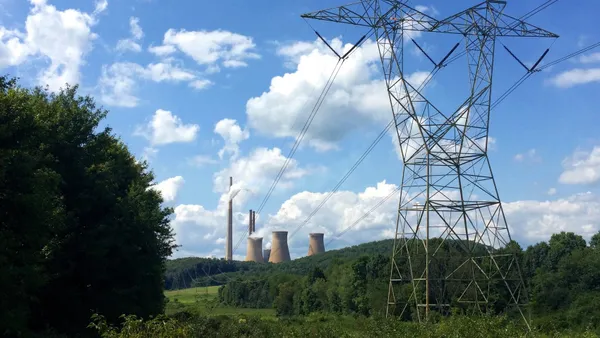Dive Brief:
- Outgoing North Carolina Gov. Pat McCrory (R) has signed legislation that would strip some powers from his Democratic successor and give them to the Republican-controlled state legislature, a move that has sparked protests at the state's capitol.
- Nationally, the story been portrayed as a politically-motivated power grab following a rancorous election. But last week one lawmaker said the changes were made possible by disagreements over coal ash management following a state Supreme Court decision earlier this year, WRAL 5 reports.
- The controversial measure, House Bill 17, gives the legislature back authority over state appointees to universities and oversight commissions that had previously been filled by the governor. The court ruled in January that lawmakers did not have proper legal authority when they created an earlier commission to oversee coal ash, now disbanded.
Dive Insight:
North Carolina's coal ash debate has made national headlines at times, but the recent reallocation of some executive-branch powers hasn't appeared to be an energy issue.
Now, local station WRAL reports the legislature's recent move to strip some authority from incoming Democratic Gov. Roy Cooper may be tied to commission appointments that concern coal ash.
In January, the North Carolina Supreme Court ruled lawmakers overstepped their authority in creating new commissions, including one with oversight over coal ash. Now legislative leaders say they are simply trying to "re-balance" powers.
"In response to that, this legislature is returning to its constitutionally vested authority to appoint members of university boards of trustees, a constitutional power that it had, by statute, for years allowed the executive to exercise," Rep. Dennis Lewis (R), chair of the House Rules Committee, told the station.
Whether that statement is simply political posturing may depend on where you stand in North Carolina politics. Gov. McCrory, who signed the legislation, would presumably not have done so if it limited his own powers.
Even so, power struggles involving North Carolina coal ash management go back years.
In November, Duke Energy unveiled a strategy to deal with its coal ash basins, excavating 34 and capping another 18 basins in place. The plan followed McCrory signing a bill allowing Duke to clean up coal ash pits at half of its sites without having to excavate the waste as long as the utility supplies clean drinking water to residents near the ponds.
That bill also eliminated the possibility of reinstating the Coal Ash Management Commission, which was disbanded earlier this year after McCrory challenged its constitutional legality.
The commission was created following Duke's coal ash spill into the Dan River in 2014, to help review closure and cleanup of coal ash ponds. In March, however, it was abruptly shut down.














